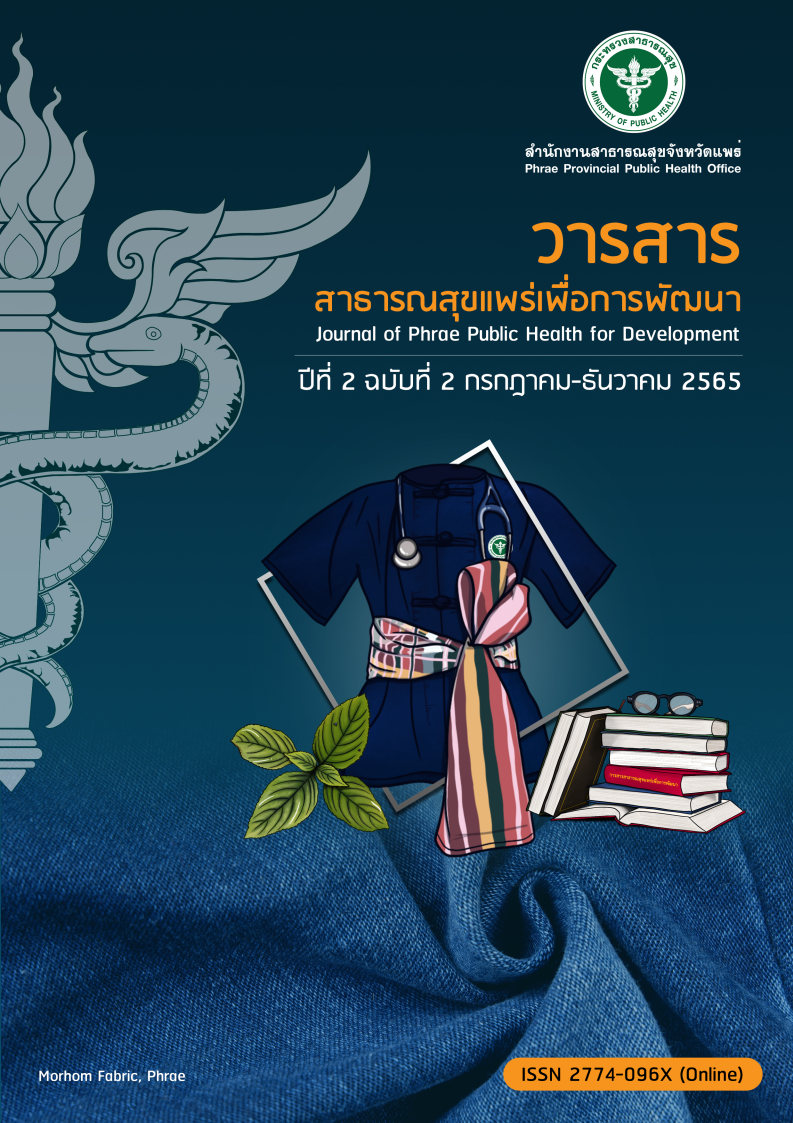The Effect of Motivational Enhancement Therapy on Quality of Life for Relapse Prevention Among Persons with Amphetamine Dependence
Keywords:
Amphetamine Dependence, Motivational Enhancement Therapy, Matrix Program Quality of LifeAbstract
This research aimed to study the effect of motivational enhancement therapy on the quality of life for relapse prevention among persons with amphetamine dependence. It is quasi-experimental research. Sixty subjects were the Amphetamine Dependence patients who received the service at Nong Muang Khai Hospital, Phrae Province. The subjects were divided into 2 groups. Both experimental and a controls-groups contained with 30 subjects. The control group received matrix program. The experimental group received matrix program with a motivational enhancement therapy program. The measures collected before the intervention, after intervention and at 12-weeks after the intervention. The research instrument was WHOQOL-BREF-THAI from Department of Mental Health. Data were analyzed by descriptive statistic and Fisher's exact test and analysis of variance with repeated measures ANOVA.
The study found that the overall, mean quality of life scores in the
pre-intervention were lower than the post-intervention and at 12-weeks after intervention in all 4 aspects. When repeated measurements were performed within the group, it was found that the quality of life scores in the post-intervention and at the 12-weeks after intervention were significantly increased more than the pre-intervention (p<0.05). While the control group had statistically significant increase in quality of life scores during the 12-weeks after the intervention than the pre-intervention (p<0.05). But in the pre-intervention and post-intervention, there was no statistically significant difference in quality of life scores (p>0.05). As for comparing between the experimental group and the control group for the 3 periods, it was found that the score of quality of life were no statistically significant (p>0.05). There was no statistically significant and difference in the number of relapse patients between the experimental group and the control group (p>0.05). However, when considering the percentage of relapse, it was found that 3.33 percentage of the experimental group had relapsed and 13.33 percentage of the control group had relapsed.
Downloads
Published
How to Cite
Issue
Section
License
Copyright (c) 2021 Journal of Phrae Public Health for Development (JPPHD)

This work is licensed under a Creative Commons Attribution-NonCommercial-NoDerivatives 4.0 International License.





